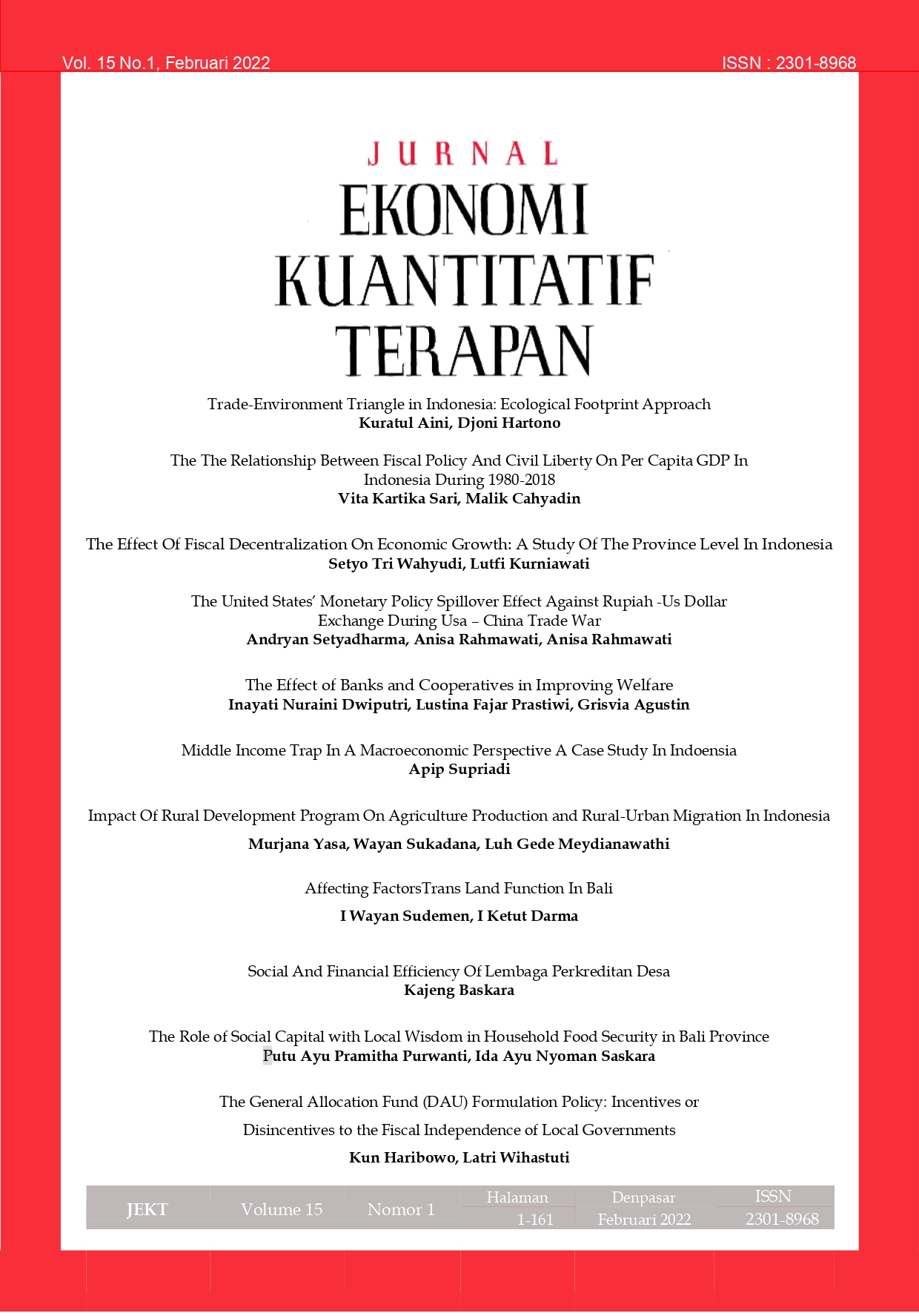Trade-Environment Triangle in Indonesia: Ecological Footprint Approach
Abstract
This study aims to analyze the relationship between the ecological footprint as a more comprehensive indicator of environmental degradation and economic growth and trade and investment in Indonesia from 1970 to 2017. It will also examine the existence of the Environmental Kuznets Curve (EKC) and the Pollution Haven Hypothesis (PHH) in a framework called the trade-environment triangle using Autoregressive Distributed Lag (ARDL) and error correction model (ECM). The estimation results show no inverse U-shaped relationship between environmental degradation and economic growth in Indonesia. The relationship between environmental degradation and FDI is not statistically significant, so it cannot be concluded that the existence of PHH and trade significantly increases environmental degradation in Indonesia. This research also formulates several policy implications for policy makers.




















